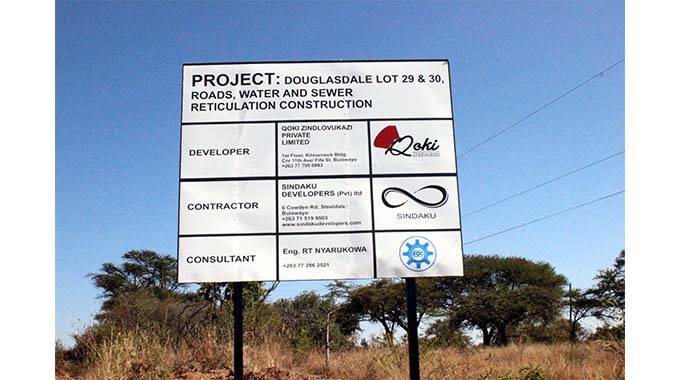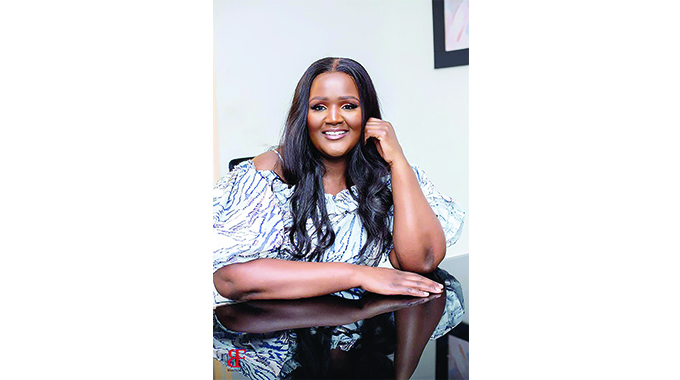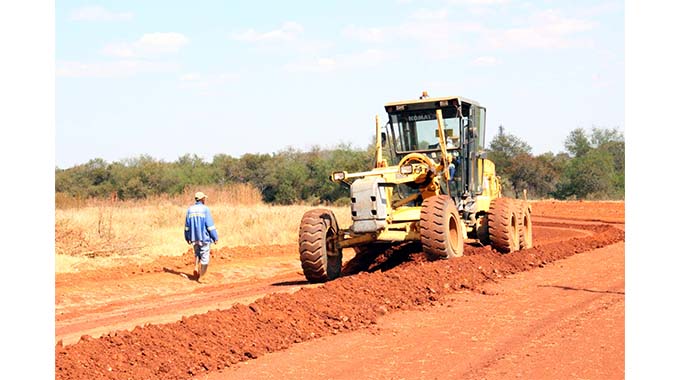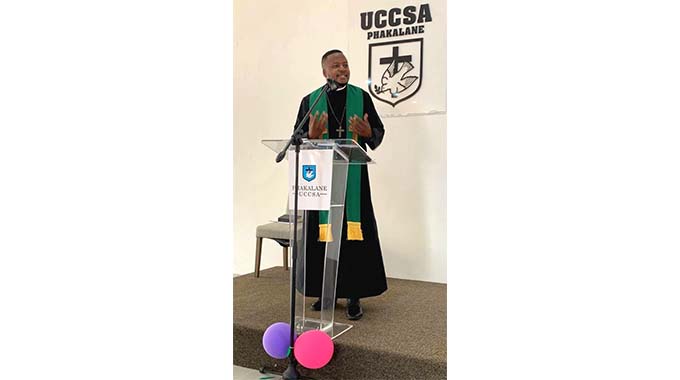Qoki Zindlovukazi. . . Zimbabwe women journey to reshape nation’s landscape

Nqobile Tshili – [email protected]
SITHULE TSHUMA, a visionary with a burning desire to elevate her home country to the standards she has witnessed in the diaspora, has embarked on a remarkable journey.
Having resided in the United Kingdom for over 25 years, Tshuma’s dream is to spearhead the development of Zimbabwe and transform the Matabeleland region by constructing upscale homes.
She founded Qoki Zindlovukazi and now leads a group of 500 women who share her vision, together raising an impressive US$25 million to purchase land and initiate 27 ambitious projects aimed at reshaping the region’s developmental landscape.

Qoki Zindlovukazi construction projects
In their pursuit for progress, the women of Qoki Zindlovukazi have acquired land in various areas, including Douglasdale, Woodville, and other parts of Bulawayo. The group is meticulously following the National Human Settlement Policy, ensuring that before issuing title deeds or selling plots, the land is serviced to provide essential amenities such as water, sewerage, access roads, electricity, and even broadband services. Minister of National Housing and Social Amenities, Daniel Garwe, recently emphasised the importance of internet access for the new generation, acknowledging the necessity of incorporating broadband services into housing projects.
To gain first-hand insight into the groundbreaking endeavours of Qoki Zindlovukazi, Saturday Chronicle embarked on a captivating tour of the projects. On site, we witnessed dedicated teams diligently working to service the land and bring the ambitious plans to fruition. In an interview from her base in the UK, Tshuma shared the inspiration behind these development projects and the profound impact they have on empowering the diasporan community.
“At first, we pooled our resources to support one another as a community,” Tshuma explained. “This collective effort brought us closer together, enabling us to share the challenges we face while being socially isolated in a foreign land. We started by raising funds to provide blankets for district hospitals and offer support to those in need. The aim of our women’s group was to empower and assist each other during vulnerable times and economic hardships.”
Motivated by their initial successes, the women of Qoki Zindlovukazi expanded their aspirations beyond individual assistance and set their sights on grander achievements, such as building houses.

Ms Sithule Tshuma
Recognising the difficulties faced by many in constructing their own homes, the group decided to adopt a unique approach. Some members invested in properties in the UK and South Africa, while the majority expressed their desire for homes in Zimbabwe. Learning from past experiences where diasporans lost savings while attempting to build homes, they devised a concept to collectively purchase land and become property developers.
Tshuma elaborated on their strategy, stating, “We would identify suitable land and assist each other in acquiring it as a group, realising that this approach would be more cost-effective. Our projects began in 2020 and are estimated to be worth between US$20 million and US$25 million, including the associated services we have secured. We are currently working on over 27 projects spread across Matabeleland, with additional land in Hwange, Plumtree, Esigodini, and surrounding areas of Bulawayo.”

For Tshuma, the ultimate goal extends beyond providing accommodation; it entails a transformation of the property sector in Zimbabwe. She envisions building homes that reflect the style and class seen in the UK, creating serene spaces where returning diasporans can find solace.
Tshuma expressed, “After years of hard work, we simply wish to relax in peaceful surroundings. That is why we targeted low-density suburbs and designed homes that align with the European standards we are accustomed to. We aim to bridge the cultural gap and ensure our children experience a seamless transition from their lives abroad.”
In addition to offering a comfortable and luxurious living experience, the construction of these homes serves a greater purpose. Tshuma believes that the development projects undertaken by Qoki Zindlovukazi will significantly contribute to the value and attractiveness of the surrounding areas, ultimately benefiting the tourism industry as well.

Tshuma’s vision goes beyond the physical structures themselves. She envisions a revitalised sense of community and an influx of Zimbabweans who have not returned home in a long time, now drawn to these upmarket developments. These homes will serve as a catalyst for reconnecting with their roots, even if only for holiday visits. Tshuma believes that only Zimbabweans themselves can meaningfully contribute to the development of their country. She draws inspiration from the successes of communities in countries like Rwanda, Kenya, Ghana, and the Jewish diaspora, who have actively contributed to the progress of their respective nations.
Reflecting on her interactions with other diasporan communities, Tshuma expressed, “Whatever we learn from the diaspora, we take that knowledge and bring it to Zimbabwe to help build our country.
We need to come together and make contributions towards developing our communities, just like I witnessed with the Ghanaian community in the UK.”

Despite the admirable efforts and unwavering determination of Qoki Zindlovukazi, Tshuma acknowledges that they have faced challenges along the way. Delays in obtaining permits and navigating bureaucratic processes have proven frustrating, with some members even considering withdrawing from the projects. However, Tshuma remains resolute in adhering to the laws and regulations, emphasising the importance of following due processes to ensure the acquisition of individual title deeds.
Tshuma appealed for streamlined Government services, envisioning a one-stop-shop approach that would facilitate smoother execution of their duties. She called upon the authorities to support their endeavours and open doors for their initiatives, recognising the positive intentions and the potential for significant developmental impact.

“We are coming in with good intentions to develop our country and catch up with other nations. We want to see Zimbabwe reach a different stage, and we firmly believe that we, as Zimbabweans, are the ones who can make that happen,” Tshuma passionately said.
Through their perseverance and dedication, Tshuma and the women of Qoki Zindlovukazi are not only shaping the physical landscape of Zimbabwe but also fostering empowerment, unity, and progress within the diasporan community. Their visionary approach to development and their unwavering commitment to their country serve as an inspiration to all. As they overcome obstacles and work towards their dream, they are leaving an indelible mark on the future of Zimbabwe and its people.
–@nqotshili









Comments